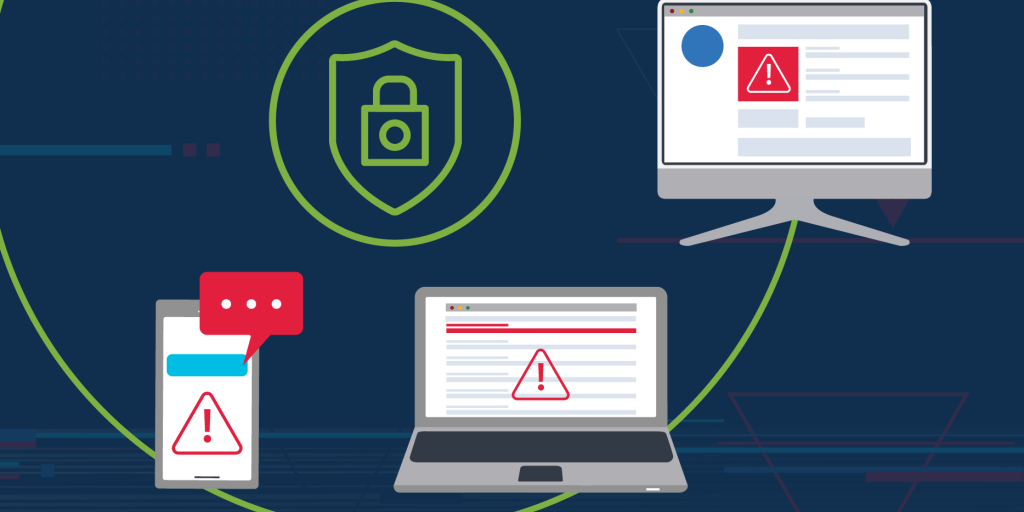Do you know Old Scams, New Year? How to Spot a Scam Before It’s Too Late? A fool’s money will quickly be lost. That’s the adage, after all. Many of us believe we would never fall victim to an obvious con, but the truth is far different. Internet scams are more prevalent than traditional forms of fraud, and they are more likely to succeed than being mugged, robbed, or threatened.
As that is the case, it is time to analyze the most common methods used by online scammers to steal your money and how to avoid them.
Read More: The Impact of AI on the Future of Cybersecurity
Explore the Contents
Phishing
Because phishing scams can originate from anywhere, they are the most prevalent. Email is used most frequently, and it is highly effective.
Imagine one of your coworkers downloaded a virus or experienced a hack. Your mailbox will include an email asking you to make changes to a document. Cybercriminals can also view your whole mailbox as soon as you accept the invitation. Even though it sounds like science fiction, one of the most well-known scams to ever affect Google occurred. Indeed, Google!
Most of your banking apps are linked to your email, so that is one quickly attacked item. Your passport, ID, or social security number can serve as the second item.
If you’ve taken precautions and don’t have access to any of that information, they’ll go after your social media accounts and demand a ransom!
Any platform might be a target for phishing. No, a lot of programs now include a question asking you if you want to follow a link you clicked on. Let that serve as a reminder of just how pervasive it is.
Never believe someone who emails you out of the blue. Never download any associated executable files, and always confirm the sender’s legitimacy.
Shopping Scams

A few years ago, everyone was interested in trying dropshipping as a side business. The company seemed to operate very simply. You launch an online business and act as a liaison between customers in your home nation and Amazon, Alibaba, or Aliexpress. There is nothing improper about an honest business, but some people chose to go beyond.
The creation of internet businesses for never-shipped goods by cybercriminals began.
They just stole money from payment processors or made further purchases using their customers’ cards.
This was successful because they produced trustworthy social media advertisements that led viewers to a stunning website. Yet everything was a fraud, and people were only conned out of their money.
Read honest reviews and make sure the website is secure if you ever find yourself clicking on a store you haven’t been to before.
Old Scams New Year

Crypto
Anyone who lived through the DotCom bubble will see the parallels between modern-day cryptocurrency frauds and what transpired twenty years ago. Although history doesn’t repeat itself, it rhymes!
The cryptocurrency industry was hip, fashionable, and in vogue. Since it was a new technology, most people were unaware of negative actors in space, even though everyone wanted to be a part of it. Since identities on the blockchain are anonymous, it is simple to deceive people with schemes that promise the world but fail to deliver the investors’ valuable coins.
Cryptocurrency fraud can take the form of whole projects, pump-and-dump schemes, rug pulls, or straightforward phishing hacks. Companies and exchanges were also assaulted. The best approach to protect yourself is to maintain the keys to your cryptocurrency, avoid signing any dubious smart contracts, and avoid sending any tokens to unidentified addresses.
Read More: Reddit Verifies Phishing Attack on February 5
Downloading Bad Files
Nothing happens if you click on a faulty link. But downloading something via a malicious link is a different matter. The majority of individuals don’t think about what they’re downloading. People that are aware of this advice never deal with unknown executable files. But, hackers are now more intelligent.
These days, spyware is being concealed in PDFs and other documents. Because cybercriminals purported to be HR representatives and bogus company members, LinkedIn scams were rather popular.
Having both an antivirus and a VPN is the ideal combination for security against malicious files.
How to Avoid Getting Scammed?
You’ll blow on some ice water as your mouth starts to burn. Certain proverbs are well-known for a reason, and that reason is that it’s because it’s true. Once you’ve been the victim of one scam, you’ll view every internet transaction as a potential scam. There is a benefits and a drawback to this. The fact that you’re alert and careful is a plus. The drawback is that you were duped.
Yet, gaining knowledge is a more effective way to handle this issue. You can avoid the difficulty of having to learn on your skin by starting with a cybersecurity glossary. Instead, you’ll gain knowledge through other people’s errors.
Use the security tools you have at your disposal, and last but not least. Firewalls, VPNs, and antivirus software all fall under this!



